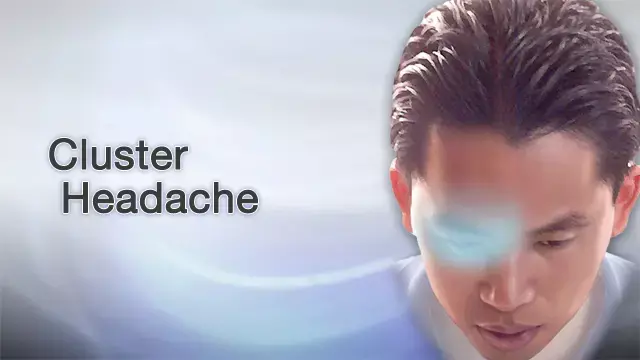- Home
- Medical news & Guidelines
- Anesthesiology
- Cardiology and CTVS
- Critical Care
- Dentistry
- Dermatology
- Diabetes and Endocrinology
- ENT
- Gastroenterology
- Medicine
- Nephrology
- Neurology
- Obstretics-Gynaecology
- Oncology
- Ophthalmology
- Orthopaedics
- Pediatrics-Neonatology
- Psychiatry
- Pulmonology
- Radiology
- Surgery
- Urology
- Laboratory Medicine
- Diet
- Nursing
- Paramedical
- Physiotherapy
- Health news
- Fact Check
- Bone Health Fact Check
- Brain Health Fact Check
- Cancer Related Fact Check
- Child Care Fact Check
- Dental and oral health fact check
- Diabetes and metabolic health fact check
- Diet and Nutrition Fact Check
- Eye and ENT Care Fact Check
- Fitness fact check
- Gut health fact check
- Heart health fact check
- Kidney health fact check
- Medical education fact check
- Men's health fact check
- Respiratory fact check
- Skin and hair care fact check
- Vaccine and Immunization fact check
- Women's health fact check
- AYUSH
- State News
- Andaman and Nicobar Islands
- Andhra Pradesh
- Arunachal Pradesh
- Assam
- Bihar
- Chandigarh
- Chattisgarh
- Dadra and Nagar Haveli
- Daman and Diu
- Delhi
- Goa
- Gujarat
- Haryana
- Himachal Pradesh
- Jammu & Kashmir
- Jharkhand
- Karnataka
- Kerala
- Ladakh
- Lakshadweep
- Madhya Pradesh
- Maharashtra
- Manipur
- Meghalaya
- Mizoram
- Nagaland
- Odisha
- Puducherry
- Punjab
- Rajasthan
- Sikkim
- Tamil Nadu
- Telangana
- Tripura
- Uttar Pradesh
- Uttrakhand
- West Bengal
- Medical Education
- Industry
Greater Occipital Nerve blockade safe and effective for Cluster Headache prevention

A recent study published in the Journal of Neurology Neurosurgery and Psychiatry has shown promising results of Greater occipital nerve (GON) blockade as a short-term preventive therapy for cluster headache (CH).
Cluster headache (CH) is a brain disorder which patients describe as the most painful condition they have ever experienced. Treatment strategies for CH can be categorised as therapies for acute relief to abort individual attacks and long-term preventive therapies. A third category is short-term preventive therapies; these may be necessary while titrating longer-term medications up to a dose which provides therapeutic benefit and provides relief in patients with episodic CH who have short bouts.
Greater occipital nerve (GON) blockade is a short-term preventive treatment which commonly consists of the injection of a corticosteroid and local anaesthetic into the suboccipital region. It has also been trialled as an acute treatment in certain cases.
GON blockade reduces the frequency, severity and duration of individual CH attacks, and there is a high probability that a patient with CH will respond to GON blockade, which uses a local anaesthetic in combination with a corticosteroid. A response may be more likely with concurrent long-term preventive medication, and where higher injectate volumes are used.
GON blockade is a safe treatment, as adverse effects were mostly transient and self-resolving except for potential avascular necrosis of the hip, and injection site cutaneous atrophy and alopecia. Methylprednisolone may have an enhanced safety profile over other corticosteroids as no potentially irreversible adverse effects have been reported in its use. However, current data on adverse effects are extremely unreliable.
Gordon et al from London, compiled a systemic review of available literature and and undertook an analysis of factors which may moderate effectiveness and safety profile of GON blockade.7 their review included 10 studies and aimed to answer the question at hand.
They found that changes to GON blockade technique in terms of using higher injectate volumes, ensuring concurrent long-term preventive use if appropriate and using methylprednisolone may be warranted in clinical practice. The infusion of a greater volume of fluid into the suboccipital compartment may increase the likelihood of the injectate bathing the GON. Cadaveric studies have shown a high degree of anatomical variation in its course, which may necessitate high injectate volumes. Variation of injection site according to the location of GON exit onto the scalp using a nerve stimulator also had a high response rate in patients with occipital neuralgia.
“Future research on GON blockade could allow us to better understand CH as a condition. Timing of injections in response to the circadian and circannual cycles and the impact of alcohol and recreational drug consumption on response to GON blockade have never been investigated. Improved knowledge of how GON blockade can be made more effective requires studies that better control confounding factors and have standardised reporting of injection technique. More standardised reporting and measurement are also needed to establish determinants of potentially irreversible adverse effects”, conclude the authors.
Reference
Gordon A, Roe T, Villar-Martínez MD, et al Effectiveness and safety profile of greater occipital nerve blockade in cluster headache: a systematic review Journal of Neurology, Neurosurgery & Psychiatry Published Online First: 22 March 2023. doi: 10.1136/jnnp-2023-331066h
MBBS, DrNB Neurosurgery
Krishna Shah, MBBS, DrNB Neurosurgery. She did her MBBS from GMC, Jamnagar, and there after did direct 6 Year DrNB Neurosurgery from Sir Ganga Ram Hospital, Delhi. Her interests lie in Brain and Spine surgery, Neurological disorders, minimally invasive surgeries, Endoscopic brain and spine procedures, as well as research.
Dr Kamal Kant Kohli-MBBS, DTCD- a chest specialist with more than 30 years of practice and a flair for writing clinical articles, Dr Kamal Kant Kohli joined Medical Dialogues as a Chief Editor of Medical News. Besides writing articles, as an editor, he proofreads and verifies all the medical content published on Medical Dialogues including those coming from journals, studies,medical conferences,guidelines etc. Email: drkohli@medicaldialogues.in. Contact no. 011-43720751


